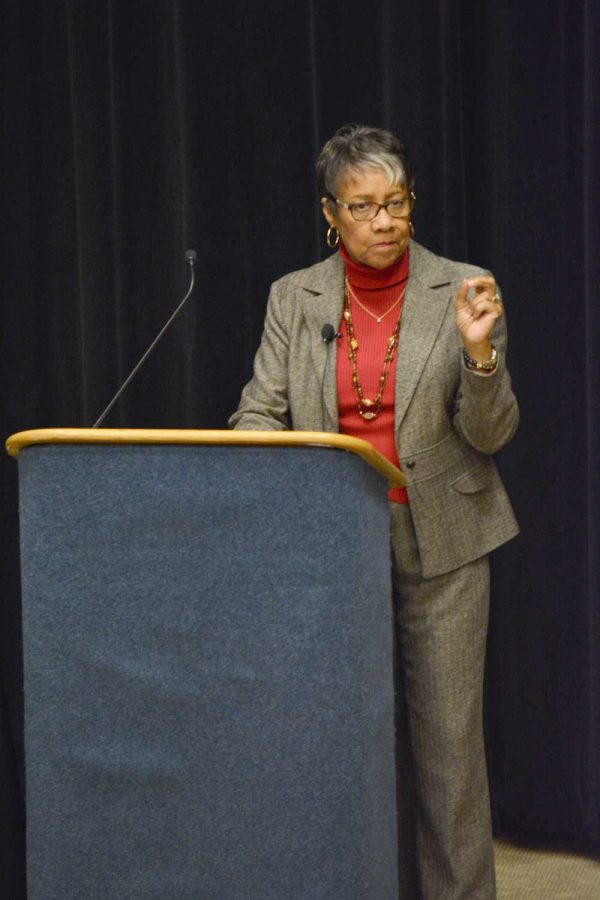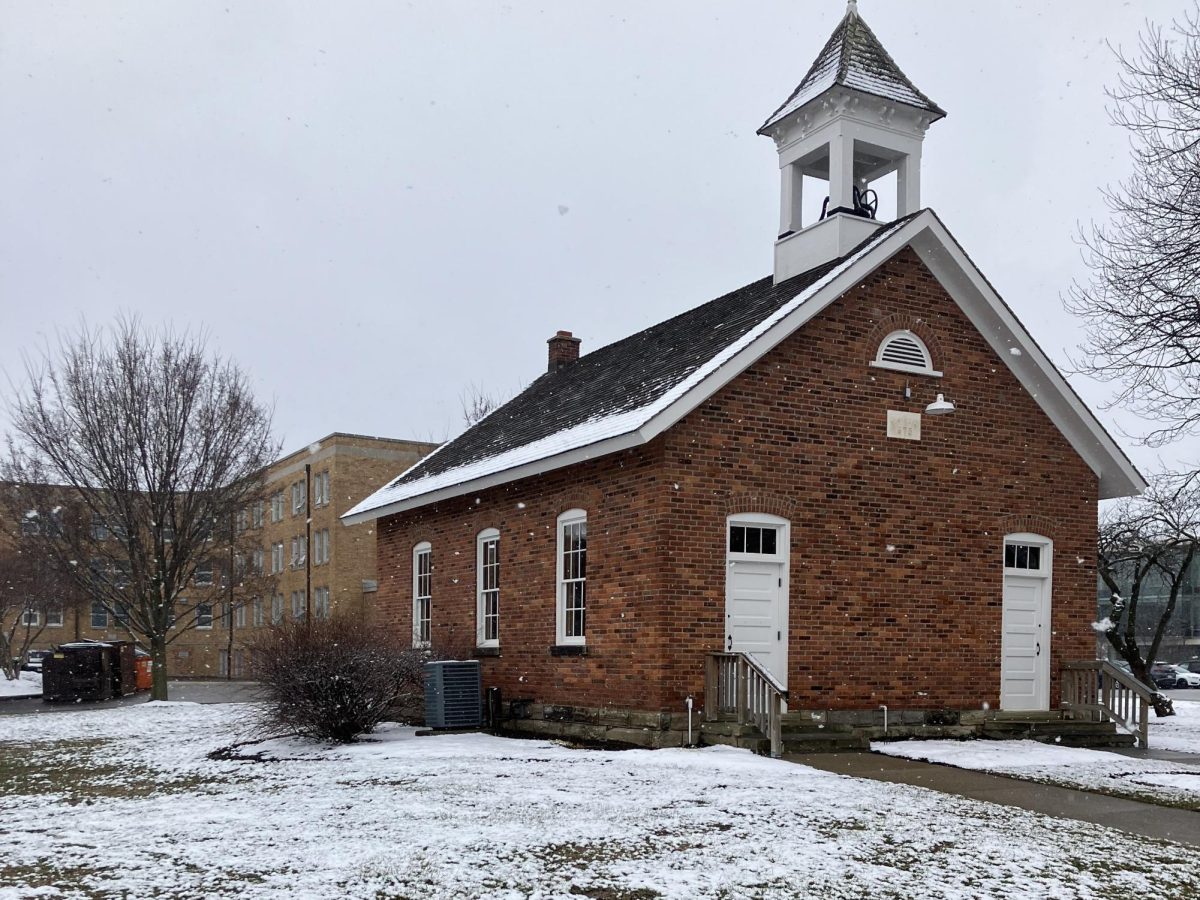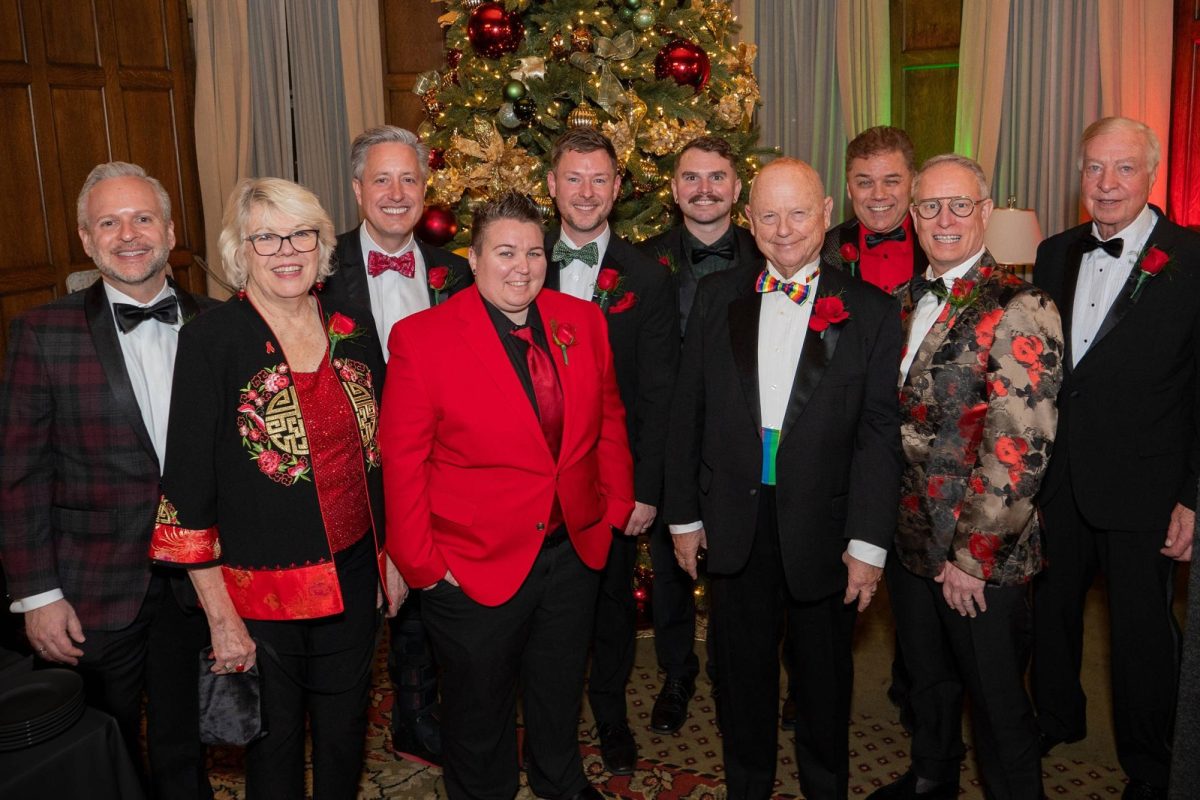Discrimination and unequal representation of African-American foreign correspondents were topics that left Bowling Green State University students thinking twice.
These topics were just a few things that Jinx Coleman Broussard, author of African American Foreign Correspondents: A History, brought up Wednesday to a group of University students.
Coleman Broussard discussed her findings from writing her book, learning about reporters such as Ida B. Wells, who had a bounty put on her head by a Memphis newspaper, and Ralph Waldo Tyler, who became a war correspondent during World War I.
“What I argue in my book is that repressive conditions were the genesis for African-American foreign correspondents,” she said. “When Frederick Douglass left he was a run-away slave.”
She stressed the importance these topics have in American history many years ago as well as today.
In fact, Coleman Broussard told the audience she did not know about most African-American correspondents before starting her research.
“When you become a foreign correspondent, you have arrived, so to speak,” she said. “So the fact that I had an undergraduate degree in journalism, a master’s degree in journalism and a PhD in mass communication and did not know of these people was understandable.”
This was because most correspondents at the time were portrayed as “dashing” white males or “tough” white women,
she said.
Coleman Broussard wasn’t the only one who did not know of the correspondents.
“I knew some of the newspapers [she talked about], but not some of the names,” said Ewart Skinner, a Telecommunications Department associate
professor.
Skinner once worked as a stringer reporter in Egypt for The Associated Press and other media groups.
“Of course I knew [W.E.B.] Du Bois and some of the more visible ones, but a number of the names she mentioned I had never heard of,” Skinner said.
This reason sparked his interest in her
presentation.
“I thought it was very enlightening because it was from an entirely different perspective about foreign correspondents,” he said. “If you look in media now, you will find very few, so it’s nice to see the historical evolution and strategies used for reporting.”
One question Coleman Broussard wanted the audience to think about was: “Were black correspondents able to change the status quo?”
Black foreign correspondents were not successful in changing the status quo, “But they did succeed in creating an alternative reality of darker people abroad, they took readers to places they never would have gone and they told the truth they told the other side of the story, they told our story,” she said.
Public relations major Alexia Chesbrough came into the speech without any knowledge of African-American correspondents.
“I didn’t know much about the black press and definitely the black correspondents. She definitely gave a lot information and I liked how she did it in a timeline form, so it was easy to follow,” Chesbrough said.














